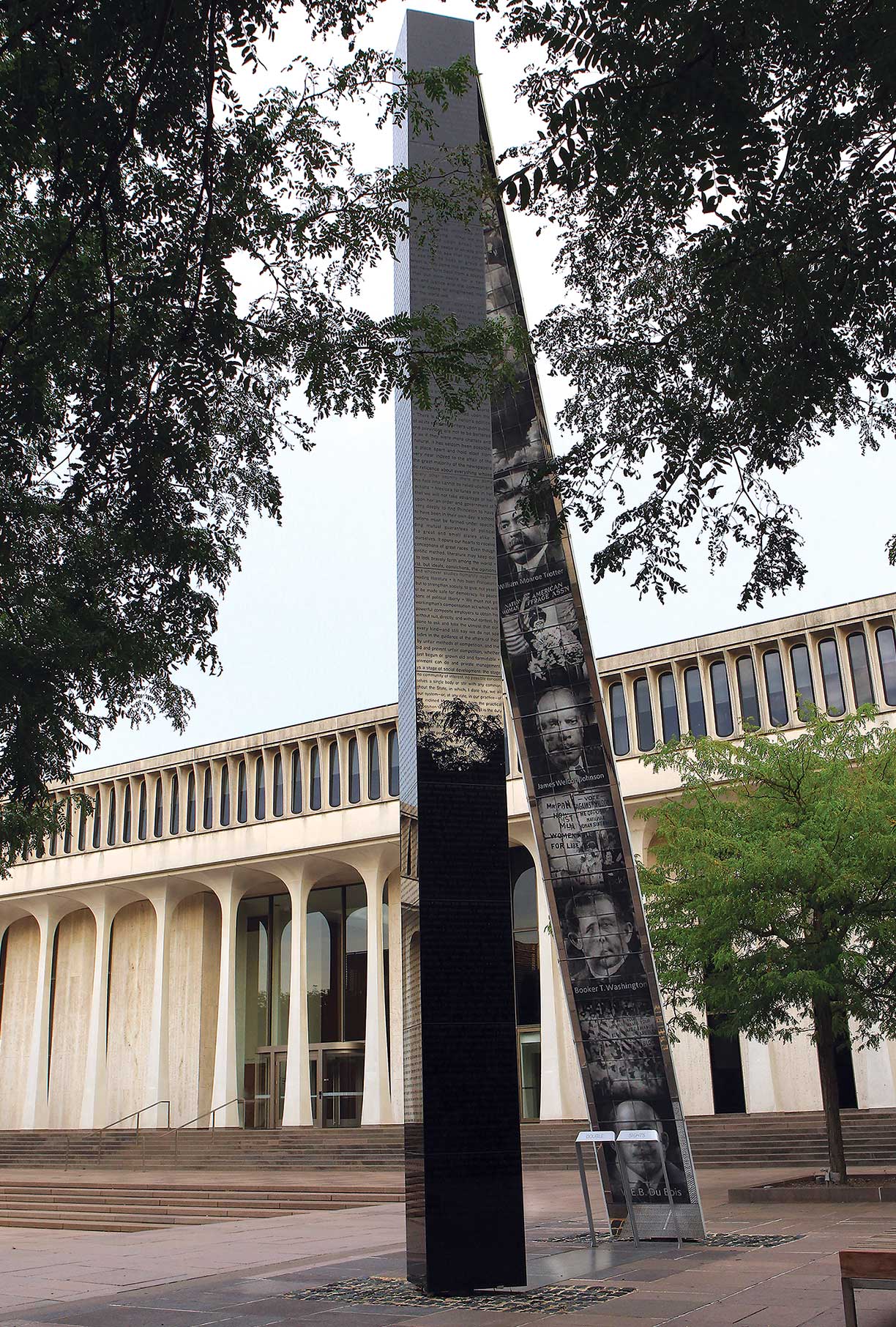Citing Racism, Trustees Rethink Wilson and Rename Policy School
In late June, Princeton’s trustees voted to rename the Woodrow Wilson School of Public and International Affairs and Wilson College, removing the name of the alumnus and former U.S. and University president whose racist actions have been the subject of a critical reevaluation in recent years. The policy school is now called the Princeton School of Public and International Affairs (SPIA), while the college was rechristened First College, in recognition of its history as the first of Princeton’s six residential colleges.
In a statement, the Board of Trustees said of the SPIA decision, “We have taken this extraordinary step because we believe that Wilson’s racist thinking and policies make him an inappropriate namesake for a school whose scholars, students, and alumni must be firmly committed to combatting the scourge of racism in all its forms.” The trustees cited the recent killings of George Floyd, Breonna Taylor, Ahmaud Arbery, and Rayshard Brooks as “tragic reminders of the ongoing need for all of us to stand against racism and for equality and justice.”
The changes were recommended by President Eisgruber ’83, who noted in a separate statement that “Wilson’s racism was significant and consequential even by the standards of his own time.” Eisgruber acknowledged that the University’s conclusions “may seem harsh to some. Wilson remade Princeton, converting it from a sleepy college into a great research university. Many of the virtues that distinguish Princeton today — including its research excellence and its preceptorial system — were in significant part the result of Wilson’s leadership. ... People will differ about how to weigh Wilson’s achievements and failures. Part of our responsibility as a University is to preserve Wilson’s record in all of its considerable complexity.”
The University’s top honor for an undergraduate alum will continue to be called the Woodrow Wilson Award. The trustees wrote that Princeton took on a legal obligation to name the prize for Wilson and to honor his “conviction that education is for ‘use’ and ... the high aims expressed in his memorable phrase, ‘Princeton in the Nation’s Service.’”
Wilson’s legacy has been a matter of intense debate at Princeton since at least November 2015, when the Black Justice League, a student group, led a 33-hour sit-in at Eisgruber’s office in Nassau Hall. The group’s demands for racial justice included removing Wilson’s name from University buildings and programs, an issue that drew national attention. Eisgruber formed the Wilson Legacy Review Committee, a 10-member trustee committee chaired by Brent Henry ’69, to consider whether the University should change the ways in which it recognizes Wilson’s actions at Princeton and during his time in the White House.
Hundreds of alumni shared their views with the committee, which released its final report in April 2016. While the committee said the University must be “honest and forthcoming” about its history and recognize Wilson’s failings, it stopped short of recommending renaming the Wilson School or Wilson College. Princeton’s trustees approved several additional actions recommended by the committee, including creating a “pipeline program” to encourage more students from underrepresented groups to pursue doctoral degrees and careers in academia; adding campus art and iconography that reflects Princeton’s diversity; updating the University’s informal motto; and installing near Robertson Hall a permanent marker that “educates the campus community and others about both the positive and negative dimensions of Wilson’s legacy.” The marker, created by artist Walter Hood, was installed in October 2019, drawing new protests and continuing debate over Wilson’s racial views.
The issue of Wilson’s name resurfaced in June, as the nation grappled with racial injustice. On June 22, a group of students and alumni of the public-affairs school petitioned the University administration for a “comprehensive transformation” of the school. Alumna and philanthropist Kwanza Jones ’93 also wrote an open letter to Eisgruber and Vice President for Advancement Kevin Heaney, arguing that by not removing Wilson’s name, “Princeton seems content on lauding Wilson and glorifying his actions.”
Eisgruber explained how recent events influenced his change of heart in a June 27 op-ed for The Washington Post, writing that “Princeton is part of an America that has too often disregarded, ignored and turned a blind eye to racism, allowing the persistence of systems that discriminate against Black people.”
Students were not satisfied. Janette Lu ’20, a co-author of the June petition from students and alumni, said that the University statements explaining the name changes were “a complete erasure of student activism on campus.” Members of the Black Justice League called for broader reforms in an essay posted on Medium: “Such symbolic gestures — absent a more substantive reckoning with lasting traditions perpetuating anti-Blackness that our full list of demands addressed — reflect the University’s ongoing failure to confront deep-rooted issues that allow the racist status quo to remain intact under the guise of progress.”
Dean Cecilia Rouse, writing to SPIA alumni, voiced her support for changing the school’s name and continuing to work for equity. “Retiring the name does not take the place of systemic change,” Rouse wrote, “but it does signal that we are prepared to do the hard work of confronting racism and other injustices.”












No responses yet